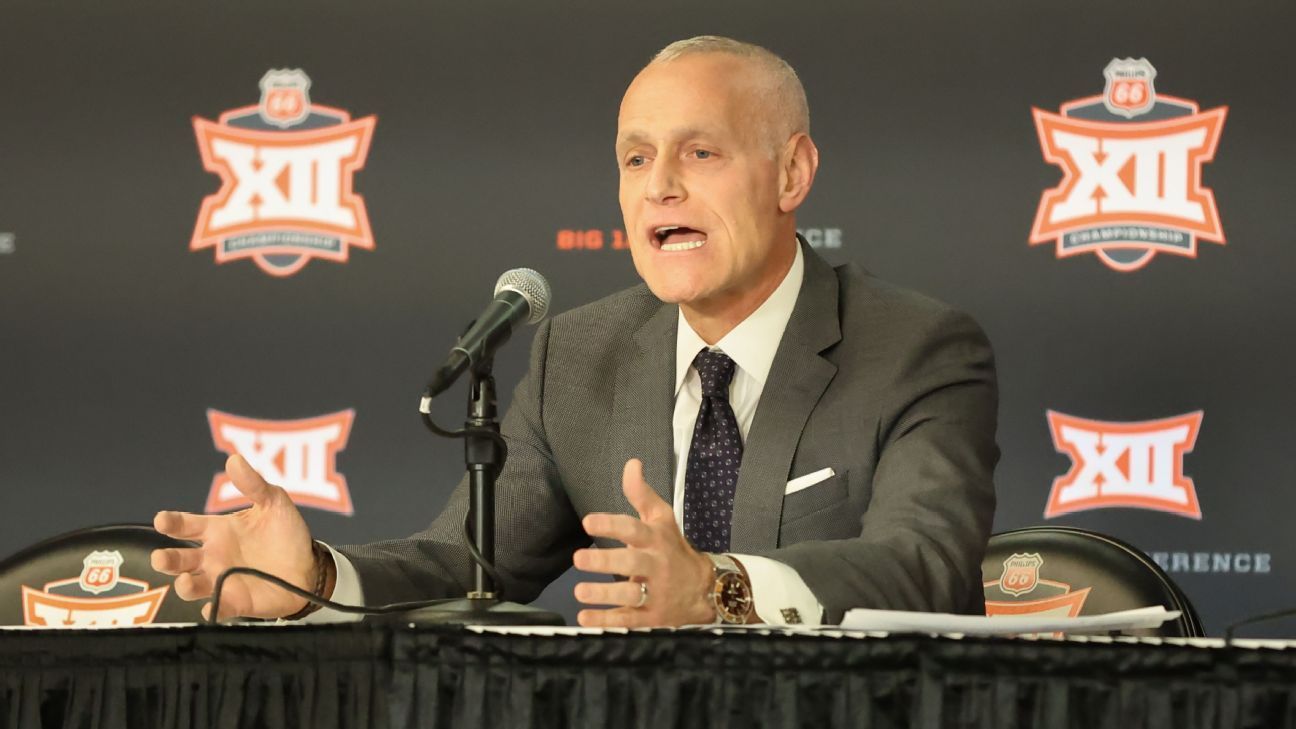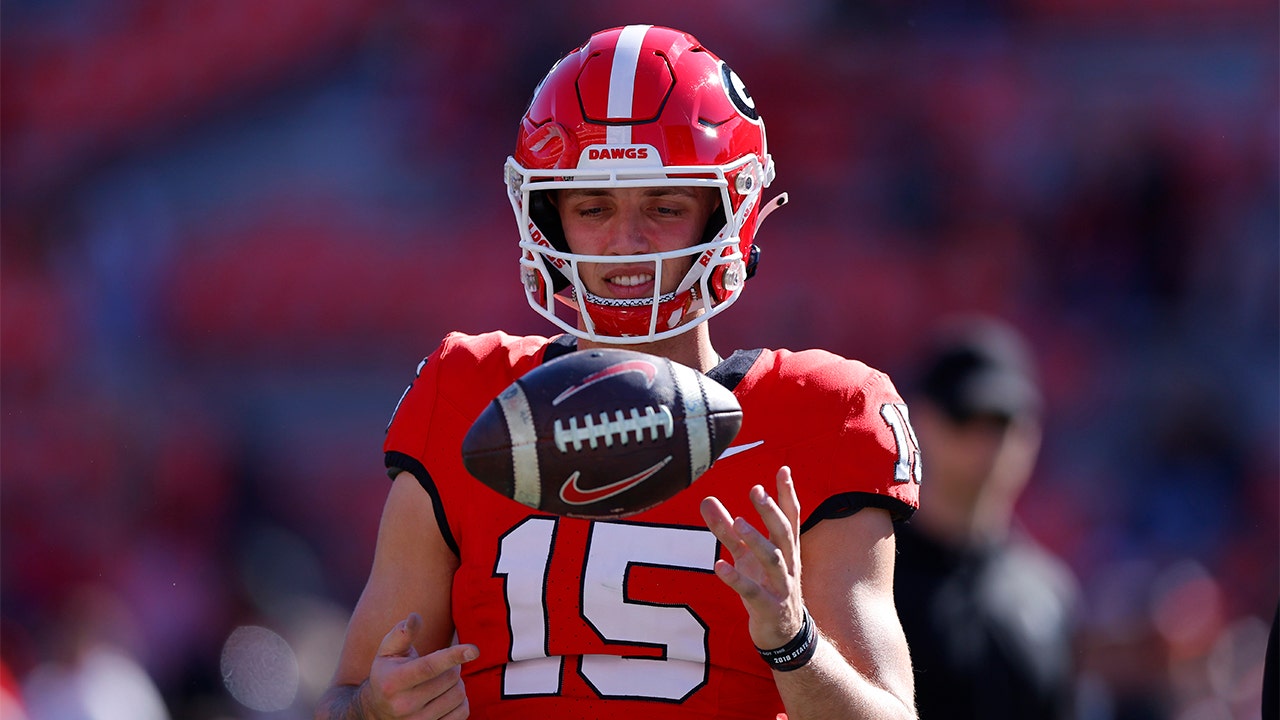IRVING, Texas — The Big 12 schools will share a record $470 million in revenue sharing, the conference announced Friday as it wrapped up its first spring meetings as a 14-team league and before growing with two more universities.
While the 10 full-share members will receive smaller amounts than they received last year due to the addition of the four schools that joined the league for the 2023-24 academic year, commissioner Brett Yormark said the conference is more relevant than ever. .
“We chose stability as a conference and felt like it was being invested in the right way and for all the right reasons,” Yormark said. “Clearly that was the right choice for this conference as we think about where we go.”
First-year members BYU, Cincinnati, Houston and UCF will each receive partial shares of approximately $18 million each. That leaves about $398 million to split among the league's other 10 schools, including Oklahoma and Texas, before they move up to the Southeastern Conference this summer.
Last year around $440 million was distributed.
The Big 12 will grow to 16 teams with the additions of Arizona, Arizona State, Colorado and Utah from the Pac-12 officially on August 1. All four incoming schools participated in this week's meetings, while Oklahoma and Texas did not.
Yormark said the increases came as a result of increased revenue from the College Football Playoffs and Bowls, growth in ticket revenue across all conference championships and sponsorship after streamlining it to be handled directly by the conference in instead of using external parts.
According to tax returns released last week, the five power conferences generated $3.55 billion in the 2022-23 fiscal year, with the Big Ten reporting revenue of $879.9 million compared to $852.6 million. SEC dollars. The ACC saw the most significant increase, rising from $617 million in 2021-22 to $707 million.
The Pac-12, which will see 10 of its 12 members disperse to other conferences in 2024-25, generated $603.9 million. The Big 12 was fifth with $510.7 million, before distributions when it was still a 10-member league.
Like the other leagues, the Big 12 is preparing for big changes after news of a landmark $2.8 billion deal that will transform the way athletes are compensated. The power conferences agreed last week to settle a series of antitrust claims that could begin going millions of dollars directly to athletes as early as the fall 2025 semester.
“I think we ended up in a fair and reasonable place,” Yormark said. “Obviously, it's going to be a changing landscape. But I also see opportunities in that changing landscape, and the work really starts now. There's a lot of work to do. I see this as a reset for our industry. And we're prepared for that. The ADs, myself and “We, the board, have been discussing that restart for quite some time, so it's not a surprise.”
When he became Big 12 commissioner two summers ago, Yormark was an executive with Jay-Z's Roc Nation and former CEO of the NBA's Brooklyn Nets. He spent nearly 15 years with the Nets, overseeing the club's move from New Jersey and construction of the Barclays Center, and was previously at NASCAR, where he oversaw a $750 million deal with Nextel Communications for the naming rights to the premier racing series. of the circuit.
“Since I took this job, I said from day one that I was open for business. And I guess you could say we're more open for business now than ever,” Yormark said. “When I think about my background, I certainly think college athletics is changing, closer to where I came from than where we are today.”












